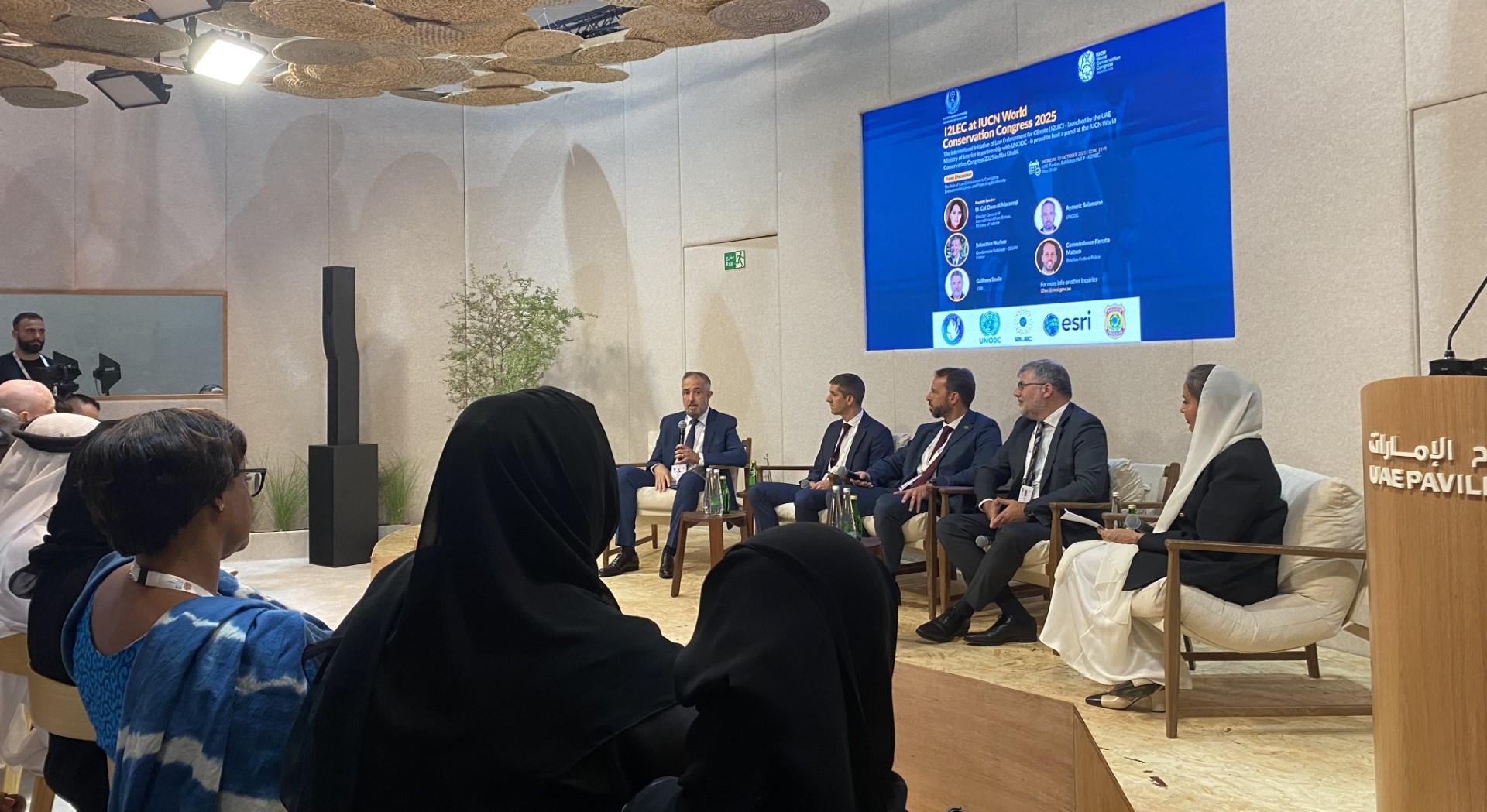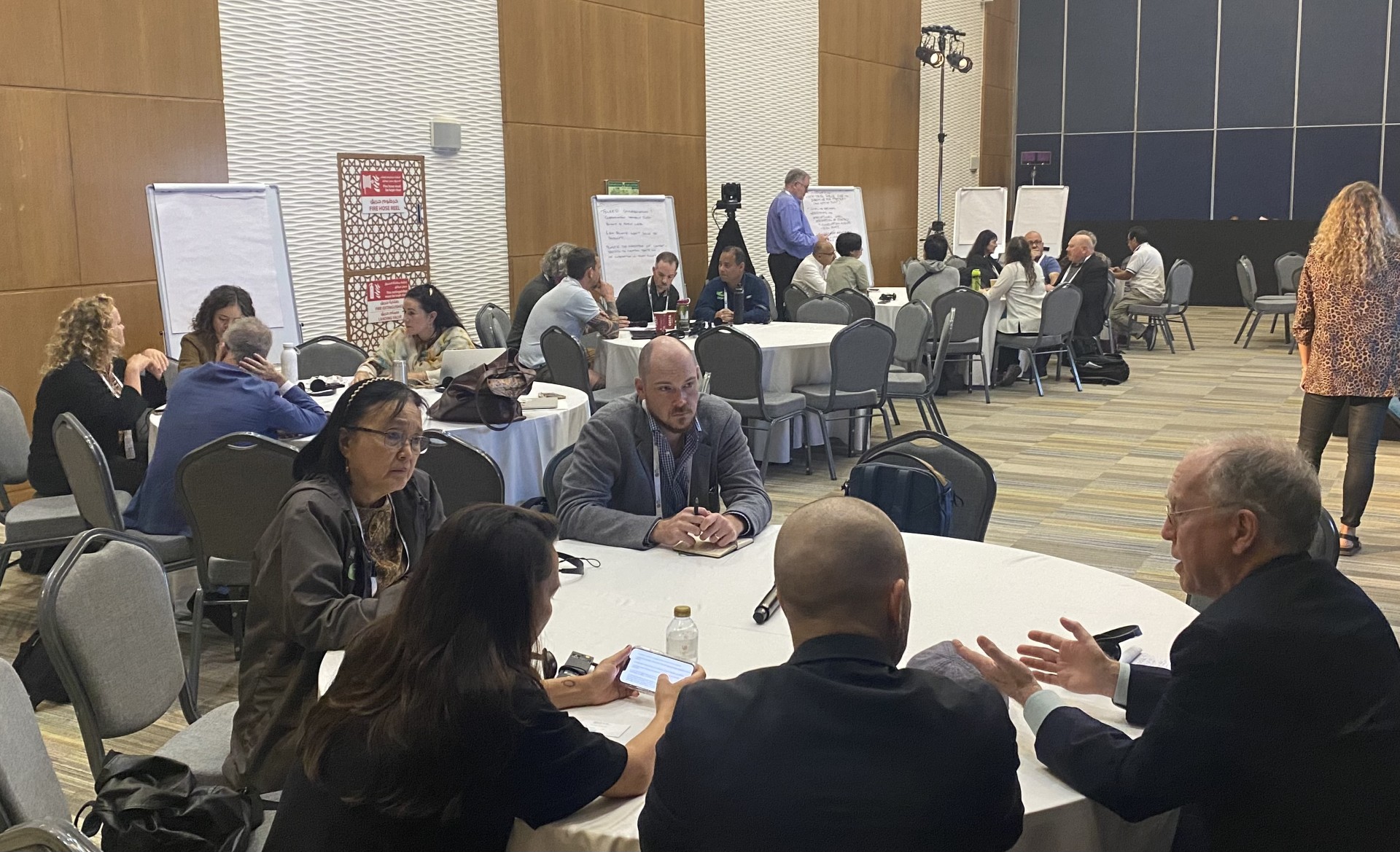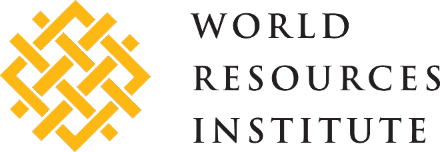Building momentum: The IUCN World Conservation Congress and environmental crime

The IUCN World Conservation Congress (WCC) convened in Abu Dhabi this month, bringing together thousands of conservation practitioners, experts and policymakers.
The Nature Crime Alliance participated in the Congress in pursuit of its strategic aim to raise political will to tackle environmental crime, and to raise awareness of this issue among the conservation community.
New resolution on crimes that affect the environment
A highlight of the Congress was the adoption of motion 048/52 on Crimes that Affect the Environment.
The resolution recognises environmental crime as a major threat to biodiversity, climate goals and human rights, and calls for stronger cooperation between governments, law enforcement agencies, Indigenous Peoples and local communities, civil society, and the global conservation community to tackle crimes such as illegal logging, deforestation, mining, fishing and wildlife trafficking and related offences.
The resolution is the result of two merged motions developed ahead of the Congress – one led by the Government of France and the International Council on Environmental Law, and another led by World Resources Institute, through the Nature Crime Alliance, and its members including the Wildlife Conservation Society (WCS) and the National Whistleblower Center (NWC). Read more about the resolution here.
Thematic session on implementation
With the resolution adopted, the Alliance convened a thematic session during the Congress which aimed to capture insights from leading experts on how the landmark resolution can be integrated into IUCN members’ conservation strategies and activities.
‘Crimes Against the Environment and Nature Crimes – A Cross-Sectoral Challenge for Conservation and the Future of IUCN’s Mandate’, saw interventions from HE Alberto Alejandro Farje Orna, Peru’s Ambassador to the UAE; Dr Susan Lieberman, Vice President, International Policy, WCS; Andrea Carmen, Executive Director, International Indian Treaty Council and Karen Hulme, Chair of the IUCN World Commission on Environmental Law Specialist Group on Peace, Security and Conflict and a Professor at the University of Essex.
Moderated by Rogier van den Berg, Global Director, Ross Center for Sustainable Cities, WRI, the session brought in the views of participants during breakout discussions which surfaced a range of ideas, including the need for a designated point of contact within IUCN to coordinate, track and drive progress on this issue across the membership, and the establishment for an IUCN task force on crimes that affect the environment.
A directory of IUCN members who are working on the issue was also recommended, as was the need for closer alignment with other international fora and frameworks that address environmental crime. Read more about the session here.

The Nature Crime Alliance gathered environmental crime practitioners to explore the implementation of the resolution into IUCN members’ activities.
Building momentum towards the UN Crime Congress
Such fora includes the UN Crime Congress, set to convene in Abu Dhabi in April 2026, where there is an opportunity to build on the IUCN resolution and keep environmental crime high on the agenda. A session convened by the Government of France in partnership with the Government of Peru, UNODC, the Wildlife Justice Commission, ICEL, WCS, WRI, NWC, the Alliance of NGOs on Crime Prevention and Criminal Justice, and the Global Initiative to End Wildlife Crime, highlighted how momentum is building in the fight against environmental crime across several UN frameworks, with the prospect of a ‘fourth protocol’ in the UN Convention against Transnational Organized Crime (UNTOC) the focus of much discussion.
A session on the role of law enforcement in fighting environmental, crime convened by the Interior Ministry of the UAE and featuring insights from the Ministry’s Foreign Affairs Bureau, the Federal Police of Brazil, the Gendarmerie Nationale (France), UNODC, and ESRI, also looked ahead to the UN Crime Congress as an opportunity to build international progress on this issue.
Environmental crime on the agenda
Members of the Alliance were also active at the Congress. IFAW convened a session on wildlife crime in Latin America which featured insights from TRAFFIC and WCS, while Earth League International hosted a podcast recording on environmental crime convergence that also featured IFAW.
Elsewhere, the World Bank’s Global Wildlife Program held a session on the role of behavioral change in driving positive conservation outcomes, including in the context of wildlife crime, and the Cheetah Conservation Fund also held a press call on new approaches to tackling wildlife crime in the Horn of Africa.
The efforts of these stakeholders is reflected in the Abu Dhabi Call to Action, issued at the end of the Congress, which includes reference to Crimes that Affect the Environment. We’re grateful to the efforts of our members, partners and other stakeholders who participated in the Congress to elevate environmental crime on the conservation agenda.
For more information, contact Luke Foddy, Communications Manager: luke.foddy@wri.org

